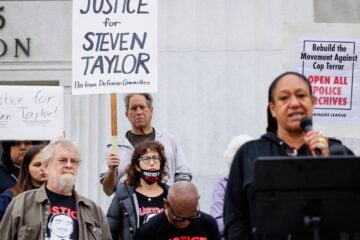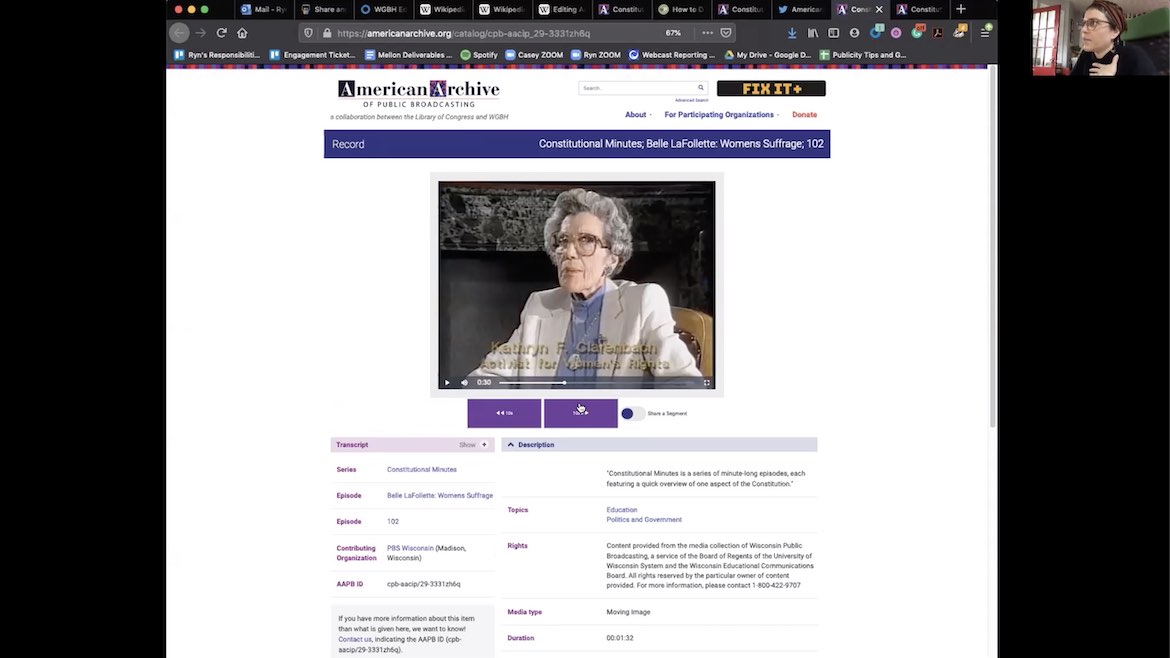NPR factors ‘mixed response’ from client stations into plans for Digital Services
With contract negotiations looming this fall, leaders at NPR member stations are getting increasingly vocal about what they see as shortcomings of the products offered by NPR Digital Services.
In 2011, NPR leaders convinced the majority of stations large and small to sign a three-year agreement for the newly formed unit to provide a fixed slate of tools and services for online streaming, website design and donation management.
With the contract term ending Sept. 30, station leaders are raising questions and concerns about the offerings and whether to renew the contract as-is. A recent informal survey of heads of 30 stations gathered mixed reviews of the package of technology tools and services designed to help stations distribute and publish news reports and other online content.
Digital Services’ tools include Core Publisher, a website content management system; Composer, a music scheduler and playlist generator; Pulse/Lyris, a service for managing emails and databases; and Quick Pledge, a tool for handling donations. Stations also have access to analytics, NPR’s API and streaming technology.
Digital Services charges stations on a sliding scale based on total station revenue. Stations with less than $1 million in total revenue pay $1,800 a year. The largest stations are capped at $100,000, and stations in the middle pay a percentage of total revenue.
The offerings from Digital Services “have had a predictably mixed response from the eclectic bunch of stations” that use them, said Tom Thomas, c.e.o. of the Station Resource Group, which aids public media outlets with strategic planning. A downside of Digital Services “is that it made people pay for what they don’t want or are not working with,” he said. Larger stations, for example, are more likely to handle digital efforts in-house rather than rely on Digital Services. Furthermore, a one-size-fits-all package is unlikely to suit the diverse formats and approaches of various stations, Thomas said.
NPR Digital Services General Manager Bob Kempf said his staff are aware of stations’ concerns and have been working to address them. Digital Services is planning a review of its own to start this spring, he said.
“We’re always monitoring the system’s impressions and feedback,” Kempf said.
Ellen Rocco, station manager of North Country Public Radio in Canton, N.Y. wanted to find out how her colleagues at other stations felt about Digital Services’ products and what they want addressed as they enter contract negotiations with NPR. She queried them with an informal survey sent to the forum of authorized representatives for NPR stations, promising to preserve their anonymity when sharing responses. About 30 A-Reps sent responses, which Rocco passed along to NPR Digital Services.
Her survey found that station executives feel NPR is focusing less on Digital Services and more on initiatives such as its upcoming mobile app. “I understand this has been a low priority for NPR, but as station general managers, we have to look at whether there is a better way to do this without NPR,” she said.
As an example, she said NPR Digital Services’ database and membership-management program Pulse/Lyris has been a major disappointment and has not been maintained during the past three years. “It’s just dismal considering this is 2014,” she said. “It’s about five years behind the ball.”
Respondents to Rocco’s survey echoed some of her frustrations. “I can understand that providing digital services to a large and hugely-diverse group of public radio stations is incredibly difficult,” one commenter wrote. “I think public radio needs something like [Digital Services] to address shared strategic concerns. But I don’t think [Digital Services] understands enough about what these concerns are, and so can’t act strategically. Instead they’re pushing products that mostly don’t fit the needs of ‘stations like me,’ and we’re becoming disenfranchised.”
Rocco said that at its formation, NPR Digital Services was intended to help the entire public radio system, much as the Public Radio Satellite System does. But it has fallen short, she said.
“The difference with the satellite system is that it was high-functioning right out of the gate, and this isn’t,” she said. “It’s not so much a matter of price; it’s a matter of unacceptable functionality.”
Third-party solutions
Some survey-takers said they were also unhappy about what they saw as a lack of transparency in NPR’s dealings with stations and about the impact of a restructuring of the division in February, in which NPR laid off three station-relations managers. A commenter asked for “some honesty about the fiscal problems facing the network.”
Station leaders asked whether Digital Services has enough manpower to meet the needs of so many stations. After February’s internal restructuring at the Boston-based division, NPR also laid off editorial training director Todd Mundt and senior news trainer Sora Newman this month.
And respondents also criticized Quick Pledge, the software provided by Digital Services for handling donations, for giving users a clunky experience and failing to work in tandem with Pulse/Lyris.
In response to concerns from stations, Kempf said, Digital Services has started revamping and replacing many of its products. It has procured a new program from a third-party vendor to replace Quick Pledge, for example. Digital Services will also roll out a new version of Composer and a replacement for Pulse/Lyris, also designed by a third party.
NPR Digital Services is also considering a new business model for its next contract term with stations, Kempf said. Many commenters criticized the all-for-one pricing required by Digital Services under the current contract, and some asked for the services to be separated for a la carte selection. Digital Services is exploring that option, Kempf said, but it will need to continue earning $6.5 million in annual revenue to maintain its current level of service.
Digital Services surveys station satisfaction every six months and will factor in the comments from A-Reps along with the next survey, scheduled for May.
“The provider is reviewing its model as promised after the first three years,” Kempf said. “It’s not like we’re sitting here saying, ‘This is the way it needs to be.’ We’re working with the market.”
A holistic look
Like many stations, St. Louis Public Radio has used some but not all of the Digital Services products. It built its website using Core Publisher and has also used Composer.
For back-end functions such as managing website content, the offerings from Digital Services can be a boon for stations lacking resources to handle such functions in-house, said Tim Eby, g.m. of St. Louis Public Radio. But Digital Services should examine NPR’s in-house digital efforts when evaluating its own products to determine what else it might share with stations.
“The big question needs to be how much duplication there is between the products NPR Digital Services is delivering and NPR has for itself,” Eby said.
Digital Services should also consider digital efforts underway throughout the system and how stations could benefit.
“The key question is, how can we run this thing as efficiently as possible?” Eby said. “That’s what we need to look at. The more we can work as a network, the better we can capitalize on opportunities.”








Great post. A small correction: The content management system is called Core Publisher. Composer is a separate application offered by NPR Digital Services – a playlist scheduler for music stations.
Thanks for pointing that out — we’ve fixed it.
Here’s the bottom line: unless and until NPR.org is forced to use the same platform that NPR Digital Services provides to member stations, two things will be true:
First: NPR:DS’s offerings will always be seen as second-rate.
Second: NPR:DS’s offerings will always BE second-rate.
There’s a reason why major tech companies adhere to the “eat your own dog food” ethos.
(Note: these thoughts are my own and do not reflect those of my employer or anyone else unless explicitly stated otherwise.)
As an NPR fan, I have read with interest news about recent staff cuts and
responsibility “realignment” in NPR’s Member Partnership and Digital Services
divisions, as well as the “mixed response” from client stations about the package of technology tools and services offered by Digital Services. I was shocked to discover that Digital Services is not in Washington, DC, but rather in one of the most
expensive business areas in Boston, MA. I’m not sure where Member Partnership is headquartered.
Since NPR offered buyouts to try to cut its staff by 10% last fall, perhaps it has office space in its new headquarters in DC to house Digital Services in a more cost-effective way? And, certainly, NPR would benefit from having all Division trying to cut the NPR deficit together in one location, with perhaps frequent trips to member stations to assess how Digital Services is improving their experience and that of NPR users. It is called NATIONAL Public Radio, after all, so a move to the nation’s capital makes sense. The government, NPR members, and other donors shouldn’t have to fund multiple locations for NPR offices when one location would suffice. Also, given the need for jobs in DC—especially jobs for underprivileged populations–the thought of having a local internship, training, and hiring program for these individuals so that they can make a place for themselves in the technology and media fields is quite attractive.
Digital Services has had 3 years to try to meet the needs of member stations under the current contract. Perhaps the greatest need right now is not new contract terms for those stations this fall, but rather a new leader at the helm of Digital Services to bring better insight to the job. Looking at the NPR Website to view the experience of the current Digital Services VP and GM, I note that while he was vice president of product and technology at Boston.com, he was “one of the architects of the Boston.com and The Boston Globe two-brand strategy.”
A Google search to see how that strategy fared led to a March 2014 Boston Magazine article about the Globe’s digital efforts, which indicated: “In
2011 the Globe embarked on a so-called two-brand strategy:BostonGlobe.com was created to house the Globe’s reporting, accessible only to paid subscribers, while Boston.com remained free and was envisioned as the city’s home page: a portal for breaking news, weather, sports, lighterfare, and a handful of Globe stories. As print revenue has dropped, though, digital has not picked up the slack. The print edition of the paper accounted for $264 million in revenue in 2012, while Boston.com was good for $41 million and BostonGlobe.com, with its roughly 46,000 subscribers, a paltry $4.7 million, according to Globe numbers.” It doesn’t sound like the VP’s strategy at Boston.com resulted in great success, and the job hoppingthat he seems to have done prior to that (again, info available on the NPR Website) would lead one to believethat he left some jobs just as the errors of his management decisions would bediscovered.
NPR is a venerable organization that will need strong management as media both retains what is productive from the past and changes to embrace the future. I hope NPR gets that leadership